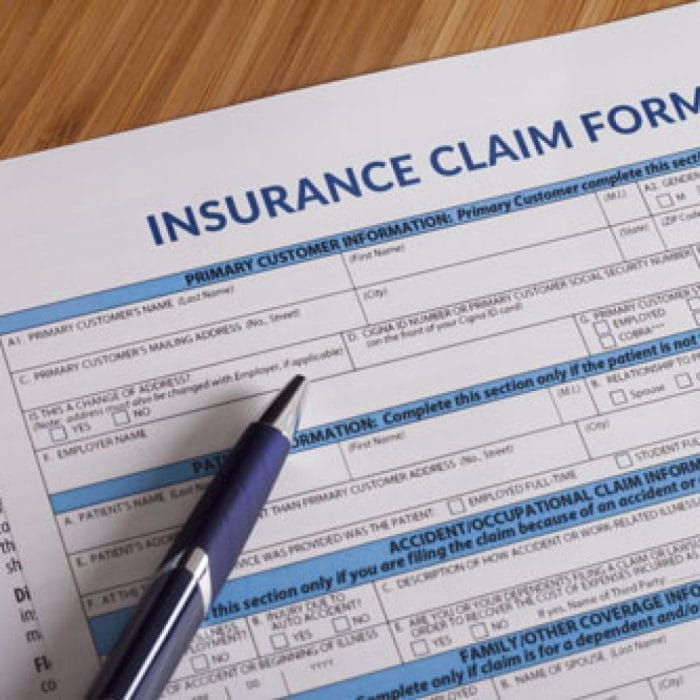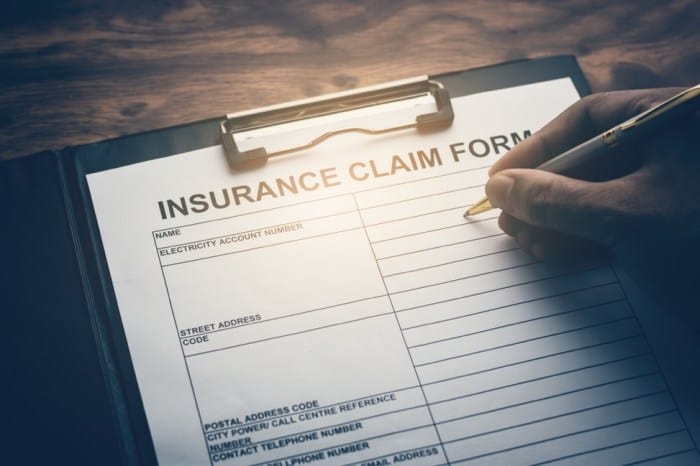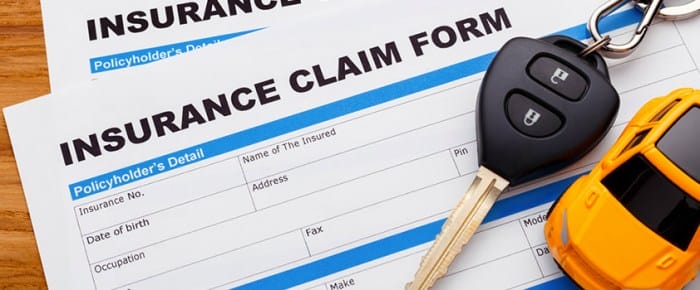In the aftermath of a car accident, the prospect of filing an insurance claim can seem daunting. With a plethora of forms, deadlines, and potential complications, it’s easy to feel overwhelmed. However, by following a structured approach and arming yourself with the right information, you can navigate the process smoothly and efficiently.
From gathering essential documentation to negotiating a fair settlement, this guide will equip you with the knowledge and strategies to ensure your claim is handled swiftly and fairly. So, buckle up and let’s embark on a journey through the intricacies of car insurance claims.
Contacting Your Insurance Company

Promptly contacting your insurance company after a car accident is crucial to initiate the claims process. You can reach out via phone or email, ensuring you provide essential details about the accident, such as the date, time, and location.
During this initial contact, inquire about the claims process and the specific documents required for submission. This proactive approach ensures a smooth and efficient claims experience.
Providing Basic Information
- Accident Date and Time: Accurately convey the date and time when the accident occurred. This information is vital for documentation and processing.
- Accident Location: Clearly specify the exact location of the accident, including the street names, intersection, or landmarks. This helps the insurance company identify the appropriate jurisdiction and applicable laws.
- Contact Information: Provide your complete contact details, including your phone number, email address, and mailing address. This ensures effective communication throughout the claims process.
- Policy Number: Locate and provide your insurance policy number. This unique identifier allows the insurance company to quickly access your policy details and coverage information.
Inquiring About the Claims Process
- Claims Process Overview: Request a comprehensive explanation of the claims process, including the steps involved, timelines, and any potential challenges or delays.
- Required Documentation: Inquire about the specific documents required to support your claim, such as police reports, medical records, vehicle repair estimates, and photographs. This information helps you gather the necessary documentation efficiently.
- Claim Submission Options: Understand the various options available for submitting your claim, whether online, through mail, or via a mobile app. Choose the method that best suits your convenience and preferences.
- Claim Tracking: Ask about the availability of online tools or resources that allow you to track the status of your claim and receive updates.
Assessing the Damage
Assessing the extent of damage to your vehicle is crucial in the insurance claim process. This involves having your vehicle inspected by an insurance adjuster, cooperating with the inspection process, and obtaining a copy of the damage assessment report.
Arranging for Inspection
Contact your insurance company promptly to schedule an inspection of your vehicle. The insurance adjuster will assess the damage and determine the extent of repairs or replacement necessary. Ensure that the inspection is conducted at a convenient location and time for you.
Cooperating with the Adjuster
During the inspection, cooperate with the insurance adjuster by providing any additional information or documentation requested. This may include details about the accident, photographs of the damage, and receipts for repairs or replacements already made. Your cooperation will help the adjuster accurately assess the damage and expedite the claims process.
Obtaining the Damage Assessment Report
Once the inspection is complete, request a copy of the damage assessment report from the insurance adjuster. This report will provide a detailed description of the damage, including photographs and repair estimates. Keep this report for your records and refer to it when discussing the claim settlement with your insurance company.
Repair or Replacement

After the damage assessment, discuss repair or replacement options with your insurance company. Consider the extent of the damage, the age of your vehicle, and its pre-accident value.
Obtaining quotes from reputable repair shops or dealerships is essential. Ensure these shops are authorized by your insurance company or have a good reputation for quality work and fair pricing.
Keep Records
Keep all receipts and documentation related to the repair costs. This includes invoices, estimates, and any correspondence with the repair shop or dealership. These documents will be necessary for your insurance claim.
Claim Settlement

After the damage assessment and repair or replacement process, the next step is to settle the insurance claim. This involves reviewing the settlement offer from your insurance company, negotiating for a fair settlement if necessary, and receiving payment for the claim.
Reviewing the Settlement Offer
Once the insurance company has assessed the damage and determined the amount they are willing to pay for the claim, they will send you a settlement offer. Carefully review the offer to ensure that it covers all the damages and expenses related to the accident.
Check for the following:
- Repair or Replacement Costs: The settlement offer should include the cost of repairing or replacing the damaged vehicle or property.
- Rental Car Expenses: If you had to rent a car while your vehicle was being repaired, the settlement offer should include reimbursement for these expenses.
- Medical Expenses: If you or any passengers in your vehicle were injured in the accident, the settlement offer should include reimbursement for medical expenses.
- Other Expenses: The settlement offer should also include reimbursement for any other expenses you incurred as a result of the accident, such as towing and storage fees.
Dealing with Liability and Subrogation

If another driver caused the accident, your insurance company may take legal action to recover the costs of the claim from the at-fault driver’s insurance company. This process is called subrogation. It’s crucial to cooperate with your insurance company throughout this process, providing them with the necessary information and documentation related to the accident.
It’s important to understand your rights and responsibilities regarding liability and subrogation. Consult with your insurance company to clarify any questions or concerns you may have about the process.
Subrogation
Subrogation allows your insurance company to pursue the at-fault driver’s insurance company for reimbursement of the costs they paid out on your claim. This process helps ensure that you are not left financially responsible for an accident caused by someone else.
- Cooperate with Your Insurance Company: Provide your insurance company with all the necessary information and documentation they request, such as accident reports, police reports, and witness statements.
- Understand Your Rights: Familiarize yourself with your rights and responsibilities under your insurance policy and state laws regarding liability and subrogation.
- Consult an Attorney: If you have questions or concerns about the subrogation process or your rights, consider consulting with an attorney who specializes in insurance law.
Medical Claims (if applicable)

If you or your passengers sustained injuries in a car accident, filing a medical claim with your insurance company is crucial. This ensures that you receive compensation for medical expenses incurred as a result of the accident.
To initiate the medical claim process, gather relevant documentation, including medical bills, doctor’s reports, and any other documentation related to the injuries sustained. These documents will help your insurance company assess the extent of the injuries and determine the appropriate compensation.
Coordination of Medical Treatment and Coverage
Work closely with your insurance company to coordinate medical treatment and coverage. They can provide guidance on finding qualified medical providers, managing medical bills, and ensuring that your treatment is covered under your policy.
Keeping Records

Keeping meticulous records throughout the insurance claim process is crucial. This includes organizing all documents, receipts, and correspondence related to the accident and the insurance claim. It’s also important to keep a record of phone calls, emails, and meetings with your insurance company.
Maintaining this documentation will be invaluable if you need to appeal the claim or take legal action.
Documenting Phone Calls and Meetings
It’s important to keep a detailed record of all phone calls and meetings you have with your insurance company. This includes the date, time, and duration of the conversation, as well as the name of the person you spoke with.
You should also note the main points of the conversation, any agreements or promises made, and any deadlines or timelines discussed.
Maintaining Copies of Documents
Keep copies of all documents related to the accident and the insurance claim, including the police report, insurance policy, medical records, repair estimates, and receipts. You should also keep copies of all correspondence with your insurance company, such as letters, emails, and text messages.
Creating a File for the Claim
It’s helpful to create a dedicated file for the insurance claim. This file should contain all of the documents, receipts, and correspondence related to the claim. You can use a physical file folder or a digital file on your computer.
Why is Keeping Records Important?
Keeping accurate and detailed records is essential for several reasons. Firstly, it helps you stay organized and ensures that you have all the necessary information at your fingertips. Secondly, it provides a clear and comprehensive record of the claim process, which can be helpful if you need to appeal the claim or take legal action.
Thirdly, it can help you track your expenses and ensure that you are reimbursed for all of the costs associated with the accident.
Legal Assistance (if necessary)

If you encounter difficulties dealing with your insurance company or if your claim is denied, consider seeking legal counsel. Legal assistance can be invaluable in understanding your rights, exploring available options, and providing representation during negotiations or legal proceedings.
Seeking Legal Advice
Engaging an attorney can offer several advantages in the claims process. They can:
- Review your insurance policy, explaining the terms, conditions, and coverage details.
- Analyze the facts of your case, identifying strengths and weaknesses in your claim.
- Represent you in negotiations with the insurance company, advocating for a fair settlement.
- File a lawsuit on your behalf if necessary and represent you in court.
Final Summary

Filing a car insurance claim can be a complex and time-consuming process, but by following these expert tips, you can increase your chances of a successful outcome. Remember to prioritize safety, gather evidence, communicate promptly with your insurance company, and keep detailed records.
With patience, persistence, and a proactive approach, you can navigate the claims process and get the compensation you deserve.
FAQ Summary
Question: How soon should I contact my insurance company after an accident?
Answer: It’s crucial to contact your insurance provider as soon as possible after the accident, ideally within 24 hours. Prompt reporting ensures that the claims process can commence without delay.
Question: What documents should I gather before filing a claim?
Answer: To expedite the claims process, gather essential documents such as the police report, driver’s license, insurance policy, photos of the accident scene, and any medical records related to injuries.
Question: How can I negotiate a fair settlement with my insurance company?
Answer: When negotiating a settlement, provide detailed documentation of damages, repair estimates, and medical expenses. Be prepared to discuss your claim with an insurance adjuster and advocate for a fair resolution.
Question: What should I do if my claim is denied?
Answer: If your claim is denied, review the denial letter thoroughly. Consider filing an appeal with your insurance company, providing additional evidence or seeking legal advice if necessary.



